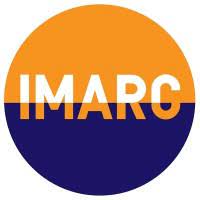
Mining industry on the right ESG path – but more work to do, IMARC told
The global mining industry has both a responsibility and an opportunity to lead the world in ensuring supply chains meet the standards that modern society expects, delegates at the International Mining and Resource Conference in Sydney were told today.
Executive Director of the Extractive Industries Transparency Initiative (EITI) Mark Robinson, the leading global standard for good governance in the extractive sector, said countries like Australia can and should take a leadership position internationally on responsible mineral sourcing.
“Australia is rightly proud of its track record as a global leader in the extractives sector. In the context of unprecedented demand for minerals to fuel the energy transition, Australia has a golden opportunity to be not only a global mining superpower, but also a leader on ESG performance.”
He said while countries across Asia, Africa and South America have made steady progress, technical support and regional leadership are needed to ensure that crucial reforms are sustained and that mineral supply chains are resilient.
“This is where Australia can really lead. There is clear alignment with the Government on Australia’s goals of supporting dialogue on the energy transition and taking action against corruption. The EITI is also at the heart of a digital transformation which is bringing information on the extractive sector into the public domain through open data to generate public debate and inform policy dialogue.
“The opportunity exists now to ensure that the strategic minerals boom will provide benefits to citizens in producing countries,” Mr Robinson said.
Board Chair of Clareo and Chair Development Partner Institute Peter Bryant noted that with all the focus on ESG, a lot of work still remains, particularly in acknowledging the impact on First Nations people from around the world.
“One Indigenous group in Canada studied every single ESG report known to mankind, and they found that First Nations people were only mentioned twice. Once in an appendix and once as a risk to be managed,” Mr Bryant said.
“What message does that send to Indigenous people, that they are a risk to be managed? There’s no dialogue to be had for risk.”
Mining Projects & Transactions Partner at MinterEllison Jordan Phillips observed that too often business and corporations turn to lawyers to address social issues that need to be resolved in a more collaborative manner.
“The really hard thing is that too often a problem is given to legal, and they are expected to produce a document, but not produce an outcome for the process. If businesses want to address ESG challenges they will need to change their processes, including how they procure their goods through the supply chain,” Mr Phillips said.
“It’s not just about a statement, the statement writes itself after you’ve gone through the proper processes.”
Senior Director, Environment & Social Governance at Hexagon Louise Daw, said Hexagon’s suppliers must adhere to the same strict standards set out by the UN in relation to human rights, labour conditions and the precautionary principle and responsibility concerning the environment and anti-corruption.
“Hexagon is proud to consider itself an employer of choice and we seek to ensure we have a culturally diverse and inclusive workplace environment across all of our global offices,” Ms Daw said.
“This also extends to Hexagon’s desire to meaningfully engage with communities across various mining regions, ensuring we make a difference in people’s lives by undertaking important socioeconomic development programs.”
Hexagon’s initiatives are aligned with the United Nations Sustainability Development Goals, the Responsible Business Alliance, and the Carbon Disclosure Project, which are representative of a multi-faceted approach and commitment to sustainability.
Partner at ERM Sabrina Genter works with clients to help identify, understand and manage their social and human rights risks, impacts, and opportunities. She pointed out to the panel that the hardest part for a business in implementing good ESG policies and helping solve structural inequalities is all about core business process.
“The solution starts by getting the systems and processes right in a business. Once you get the process right, you don’t need to be thinking about managing a potential mess and can start doing the work to improve the situations of people within your supply chain.”
About The International Mining and Resources Conference (IMARC)
IMARC, Collaborating on trends in mining, investment and innovation towards a sustainable future. The International Mining and Resources Conference (IMARC) is where the most influential people in the mining industry come together, delivering ideas, inspiration and serving as a meeting ground for industry leaders. As Australia’s largest mining event, it brings together over 8,500 decision makers, mining leaders, policy makers, investors, commodity buyers, technical experts, innovators, and educators from more than 120 countries for three days of learning, deal-making and unparalleled networking. IMARC is developed in collaboration with its founding partners the Victorian State Government, Austmine, AusIMM and Mines and Money, and held with the support of its Host Partner, the NSW Government.
MORE or "UNCATEGORIZED"
Delta Reports New Gold Intercept at Nova Target in Wedge Area, 4 Kilometres West of Eureka; Follow-Up Drill Program Underway
Delta Reports New Gold Intercept at Nova Target in Wedge Area, 4 ... READ MORE
Silver One Announces Closing Of Final Tranche Of $32 Million Financing
Silver One Resources Inc. (TSX-V: SVE) (OTCQX: SLVRF) (FSE: BRK1)... READ MORE
SAGA Metals Achieves 100% Drilling Success in 2025—Reports Final Assays from Trapper South at Radar Critical Minerals Project in Labrador
Exceptional grades of Titanium, Vanadium and Iron in all 15 drill... READ MORE
Near Surface Intersection Yields 6.58 g/t gold over 10.35 metres
Intersection is within 33 metres from surface and contained in a ... READ MORE
Alamos Gold Provides Three-Year Operating Guidance Outlining 46% Production Growth by 2028 at Significantly Lower Costs
Further production growth to one million ounces annually expected... READ MORE













